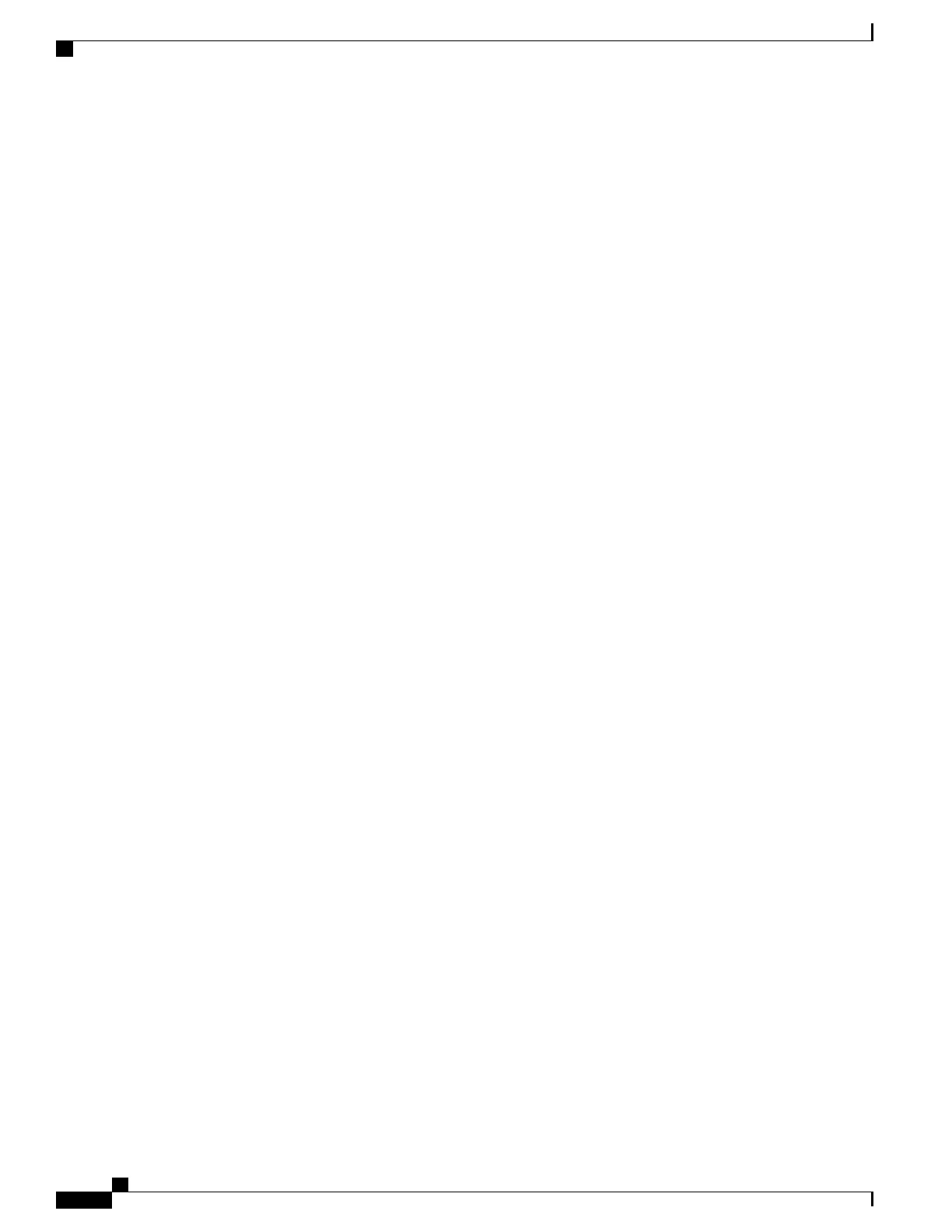Inline Set Form
The inline set form is a parenthesized list of comma-separated expressions, as follows:
(ios-regex '_42$', ios-regex '_127$')
This set matches the same AS paths as the previously named set, but does not require the extra effort of
creating a named set separate from the policy that uses it.
community-set
A community-set holds community values for matching against the BGP community attribute. A community
is a 32-bit quantity. Integer community values must be split in half and expressed as two unsigned decimal
integers in the range from 0 to 65535, separated by a colon. Single 32-bit community values are not allowed.
The following is the named set form:
Named Set Form
community-set cset1
12:34,
12:56,
12:78,
internet
end-set
Inline Set Form
(12:34, 12:56, 12:78)
($as:34, $as:$tag1, 12:78, internet)
The inline form of a community-set also supports parameterization. Each 16-bit portion of the community
may be parameterized. See the Parameterization, on page 556 for more information.
RPL provides symbolic names for the standard well-known community values: internet is 0:0, no-export is
65535:65281, no-advertise is 65535:65282, and local-as is 65535is-empty:65283.
RPL also provides a facility for using wildcards in community specifications. A wildcard is specified by
inserting an asterisk (*) in place of one of the 16-bit portions of the community specification; the wildcard
indicates that any value for that portion of the community matches. Thus, the following policy matches all
communities in which the autonomous system part of the community is 123:
community-set cset3
123:*
end-set
A community set can either be empty, or contain one or more community values. When used with an empty
community set, the is-empty operator will evaluate to TRUE and the matches-any and matches-every
operators will evaluate to FALSE.
Cisco ASR 9000 Series Aggregation Services Router Routing Configuration Guide, Release 5.3.x
546
Implementing Routing Policy
Routing Policy Language Overview

